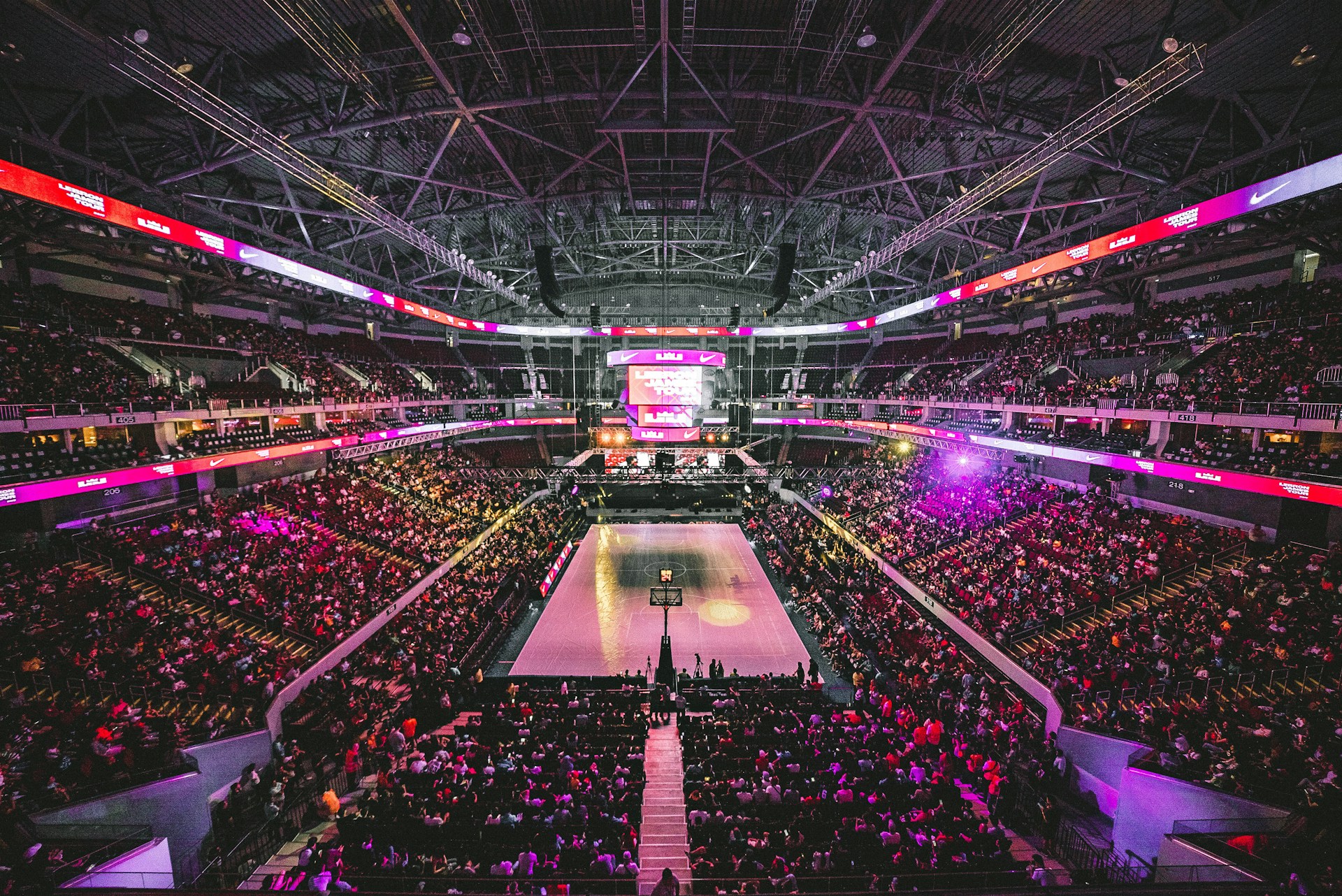How Can UK Sports Organizations Use AI for Performance Analysis and Injury Prevention?

Sports are a significant part of UK culture, providing entertainment and promoting health and wellbeing. The sports industry is continuously evolving, and technology plays a crucial role in its development. In recent years, Artificial Intelligence (AI) has emerged as a game-changer, transforming how sports organizations train athletes, analyze performance data, and prevent injuries. This article explores how UK sports organizations can harness AI technology to enhance performance analysis and injury prevention, ultimately elevating the level of competition and ensuring the well-being of athletes.
The Role of AI in Performance Analysis
AI technology is revolutionizing how sports organizations analyze performance data, offering real-time insights that were previously unimaginable. By integrating AI algorithms into performance analysis, coaches and athletes can make more informed decision making, tailor training programs, and optimize athlete performance.
A lire également : What Are the Best Practices for Implementing AI in UK Legal Document Review?
Enhanced Data Collection and Analysis
AI facilitates the collection and analysis of vast amounts of performance data from various sources, such as wearables, sensors, and video footage. Machine learning algorithms process this data to identify patterns and trends that might not be apparent to the human eye. As a result, coaches can gain a deeper understanding of an athlete's strengths and weaknesses, allowing for more personalized and effective training programs.
For instance, computer vision technology can analyze video footage of a player's movements, providing detailed feedback on their technique. This can help athletes refine their skills and improve their performance on the field. Moreover, AI-powered sports apps provide real-time feedback during training sessions, enabling athletes to make immediate adjustments and track their progress over time.
Dans le meme genre : How Can AI Assist UK Travel Agencies in Personalizing Vacation Packages?
Informed Decision Making
AI-driven performance analysis empowers coaches and athletes to make data-driven decisions. By leveraging insights from AI algorithms, they can develop strategies that maximize the team's chances of success. For example, data on an opponent's tactics can inform game plans, while analysis of an athlete's performance can highlight areas that need improvement.
This intelligence extends beyond the sports field. In the sports market, organizations use AI to make strategic decisions related to player recruitment, fan engagement, and marketing. By understanding the preferences and behaviors of fans, sports organizations can create more engaging experiences and foster a loyal fan base.
AI in Injury Prevention
Injuries are a significant concern in the sports industry, as they can have long-term consequences on an athlete's career and the team's performance. AI technology offers innovative solutions for injury prevention, helping to identify risk factors and implement preventive measures.
Predictive Analytics for Injury Risk Assessment
AI-powered predictive analytics can assess an athlete's risk of injury by analyzing performance data, training loads, and medical history. Machine learning algorithms identify patterns that indicate an increased likelihood of injury, allowing coaches and medical staff to take proactive steps to mitigate these risks.
For example, AI can monitor an athlete's workload and detect signs of overtraining, which is a common cause of injuries. By adjusting training programs based on these insights, coaches can ensure that athletes are training at an optimal level without compromising their health. Furthermore, AI can predict the likelihood of specific injuries, such as muscle strains or ligament tears, enabling targeted preventive measures.
Real-Time Monitoring and Feedback
Wearable devices equipped with AI capabilities provide real-time monitoring of an athlete's physiological and biomechanical parameters. These devices can track metrics such as heart rate, muscle activity, and joint angles, offering valuable insights into the athlete's condition during training and competition.
If the AI system detects an anomaly or signs of fatigue, it can immediately alert the athlete and coaching staff, allowing for timely interventions. This real-time feedback helps prevent injuries by ensuring that athletes do not push themselves beyond their limits. Additionally, AI-powered apps can guide athletes through recovery and rehabilitation programs, providing personalized recommendations and progress tracking.
Enhancing Rehabilitation and Recovery
AI plays a crucial role in the rehabilitation and recovery process for injured athletes. By analyzing data from physical therapy sessions and monitoring progress, AI can optimize rehabilitation programs and ensure that athletes recover fully and return to peak performance.
For example, AI algorithms can analyze movement patterns during rehabilitation exercises to identify areas of improvement and adjust the program accordingly. This data-driven approach enhances the effectiveness of rehabilitation and reduces the risk of re-injury. Moreover, AI-powered apps can provide athletes with personalized recovery plans, ensuring that they adhere to their rehabilitation protocols and make steady progress.
The Role of AI in Training Programs
Training programs are the foundation of athletic success, and AI technology is transforming how these programs are designed and implemented. By leveraging AI, sports organizations can create more effective and efficient training regimens that enhance athlete performance and minimize the risk of injuries.
Personalized Training Plans
AI enables the creation of personalized training plans tailored to each athlete's unique needs and goals. By analyzing performance data, training history, and physiological metrics, AI algorithms can design training programs that optimize an athlete's strengths and address their weaknesses.
For example, if an athlete is struggling with a specific aspect of their performance, AI can identify the underlying issues and recommend targeted exercises to improve that area. This personalized approach ensures that athletes receive the most effective training possible, maximizing their potential and reducing the risk of injury.
Optimizing Training Load
One of the key challenges in training programs is managing the training load to prevent overtraining and undertraining. AI technology provides valuable insights into an athlete's workload, helping coaches strike the right balance between training and recovery.
By monitoring metrics such as heart rate variability, sleep patterns, and stress levels, AI can assess an athlete's overall readiness to train. This data-driven approach allows coaches to adjust training loads in real time, ensuring that athletes are training at an optimal level. As a result, athletes can achieve peak performance without compromising their health and well-being.
Enhancing Skill Development
AI-powered tools can support skill development by providing detailed feedback and analysis of an athlete's technique. For example, AI-driven video analysis can break down an athlete's movements frame by frame, highlighting areas for improvement and providing actionable insights.
This technology is particularly valuable for sports that require precise movements and techniques, such as gymnastics, swimming, and martial arts. By leveraging AI insights, athletes can refine their skills and achieve greater levels of performance. Additionally, AI-powered training apps can guide athletes through drills and exercises, ensuring that they are performing them correctly and efficiently.
AI and Fan Engagement in the Sports Industry
While AI primarily benefits athletes and coaches, it also plays a significant role in enhancing fan engagement in the sports industry. By leveraging AI technology, sports organizations can create more immersive and personalized experiences for fans, ultimately driving loyalty and increasing revenue.
Personalized Fan Experiences
AI enables sports organizations to deliver personalized experiences to fans by analyzing their preferences, behaviors, and interactions. For example, AI algorithms can recommend content, merchandise, and tickets based on a fan's interests and past purchases. This personalized approach enhances the fan experience and fosters a deeper connection with the team.
Moreover, AI-powered chatbots and virtual assistants can provide real-time support and information to fans, answering questions about game schedules, player stats, and ticket availability. These AI-driven tools enhance fan engagement by providing convenient and personalized interactions.
Enhancing Game Day Experience
AI technology can also enhance the game day experience for fans attending live events. For instance, AI-powered apps can provide real-time updates and insights during the game, such as player statistics, play-by-play analysis, and instant replays. This real-time information enriches the fan experience, allowing them to stay informed and engaged throughout the event.
Additionally, AI can optimize various aspects of the game day experience, such as crowd management, parking, and concessions. By analyzing data from past events, AI algorithms can predict crowd patterns and optimize resource allocation, ensuring a smooth and enjoyable experience for fans.
Engaging Fans on Digital Platforms
In today's digital age, engaging fans on social media and other digital platforms is crucial for sports organizations. AI-powered tools can analyze social media interactions and trends, providing valuable insights into fan sentiment and preferences. This data can inform marketing strategies and content creation, ensuring that sports organizations deliver relevant and engaging content to their audience.
Furthermore, AI-driven analytics can measure the effectiveness of marketing campaigns, allowing sports organizations to optimize their efforts and maximize their reach. By leveraging AI technology, sports organizations can build a strong online presence and foster a loyal fan base.
AI technology is transforming the sports industry, offering innovative solutions for performance analysis, injury prevention, training programs, and fan engagement. By leveraging AI, UK sports organizations can enhance athlete performance, reduce the risk of injuries, and create more engaging experiences for fans. As the sports industry continues to evolve, embracing AI technology will be crucial for staying competitive and achieving success. The future of sports is data-driven and intelligent, and AI is at the forefront of this revolution. By integrating AI into their operations, UK sports organizations can unlock new levels of performance and ensure the well-being of their athletes, ultimately elevating the standard of competition and enhancing the overall sports experience.
